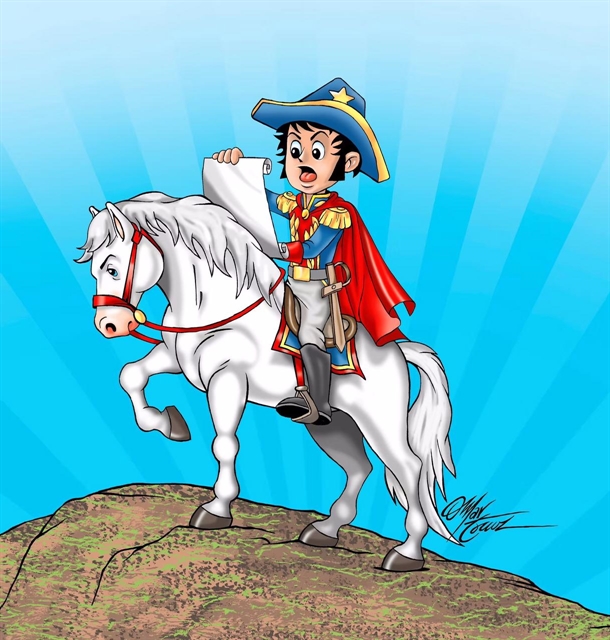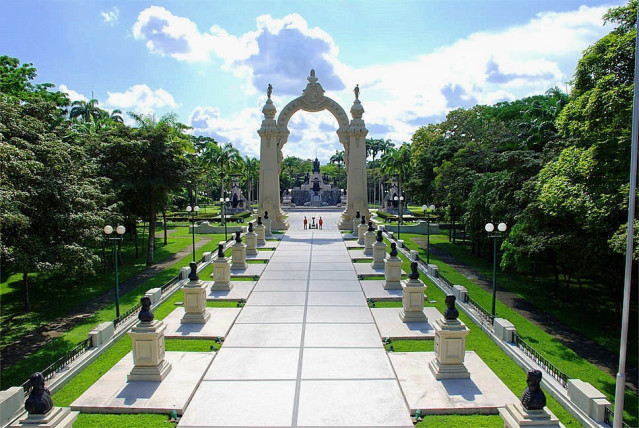 Expat Corner
Expat Corner

On the 200th anniversary of Carabobo Victory gaining the independence for Gran Colombia, ambassador of Venezuela to Vietnam Tatiana Pugh Moreno writes to Việt Nam News.
To mark the 200th anniversary of the Carabobo Victory (June 24) that gained independence for Gran Colombia, ambassador of Venezuela to Việt Bam Tatiana Pugh Moreno writes to Việt Nam News
This year 2021 is of immense symbolic importance for Venezuelans, and also for the free and sovereign peoples in the world: the bicentennial anniversary of the historic Battle of Carabobo. On June 24, 1821, the patriot army commanded by Liberator Simón Bolívar put an end to Spanish colonial rule in Gran Colombia with its military triumph. In Carabobo, Bolívar shone as the greatest general in the entire history of Latin America and this action initiated the process that would culminate with the independence of the six Bolivarian nations: Venezuela, Colombia, Panama, Ecuador, Bolivia and Peru.

|
| An oil on canvas painting depicting the Carabobo battle by Martín Tovar y Tovar painted in 1887. The painting is now hung at Venezuela's National Assembly House. Photo courtesy of the embassy |
That June 24, in broad daylight, the patriotic forces of the army and the people with 6,000 men and women faced the experienced Spanish army, with 14,000 troops under the command of Miguel de la Torre. In the official part headed to the Colombian Congress the following day, Bolívar writes that the patriot army "marched with such intrepidity on the right wing of the enemy that, in half an hour, it was surrounded by pieces totally routed and cut off”, thus sealing the victory of the most important military action of the War of Independence of Gran Colombia.
There is no doubt that our Liberator and the Venezuelan people showed their courage and strength in Carabobo. Men like Páez, Cedeño, Plaza and Pedro Camejo, better known as Negro Primero, wrote pages of glories in these lands. That same victorious army and people forces in Carabobo then undertook the southern campaign, which under the command of the Liberator Simón Bolívar and Marshal Antonio José de Sucre achieved freedom for Ecuador in the battle of Pichincha, for Peru in the Battle of Junín and for Bolivia in the Battle of Ayacucho.
Two hundred years after the Battle of Carabobo, we honour the sacrifice and patriotism of the heroes who dedicated their lives to liberate these lands from the Spanish empire. Today we are gathering the seeds of freedom and independence sown in those lands. For Venezuelans, Carabobo is the battle for the life of the country, the permanent battle for our independence and sovereignty.

|
| A cartoon by painter Omar Cruz to celebrate the 200th anniversary of the Carabobo Victory. Photo courtesy of the embassy |
As César Rengifo wrote in his play That shoot planted in Carabobo: “The country will be yours, boy, it will be yours, this land, yours, this sky, yours, the corns, potatoes, starches, oil, water, homeland."
As Commander Hugo Chávez said: “Carabobo! Carabobo sounds far and deep. It sounds far away in the history that happened; it sounds deep today in the history that is in full swing; and it also sounds far ahead, in the history that we are building. Today we are undefeated and tomorrow we will continue to be undefeated at Campo Carabobo."
For us, the year 2021 is not then a point of arrival, it is a starting point towards new advances in the construction of socialism. Two hundred years later, the Venezuelan army-people forces face a battle for their sovereignty. Venezuela, with its government led by Nicolás Maduro Moros, is determined to recover the economic prosperity of the homeland and the socialist welfare state that was violated due to the attacks we have suffered from imperialism. It is our battle of Carabobo today. As 200 years ago, the result will be the same: the historical defeat of imperialism and the victory of Bolivarian Socialism and Chavismo.

|
| The monument to the Carabobo Victory in Tocuyito. Photo courtesy of the embassy |
To celebrate this date, the Embassy of the Bolivarian Republic of Venezuela in the Socialist Republic of Việt Nam has translated into Vietnamese the work of the Venezuelan artist Omar Cruz Campo de Libertad (Freedom Field) which is now available to the children of Việt Nam.
At the same time, from the land of the great Hồ Chí Minh and with the dignity of the brave, dignified and sovereign peoples such as the Vietnamese and the Venezuelan, we remember and celebrate the bicentennial act with determination to win, and we will win! VNS




